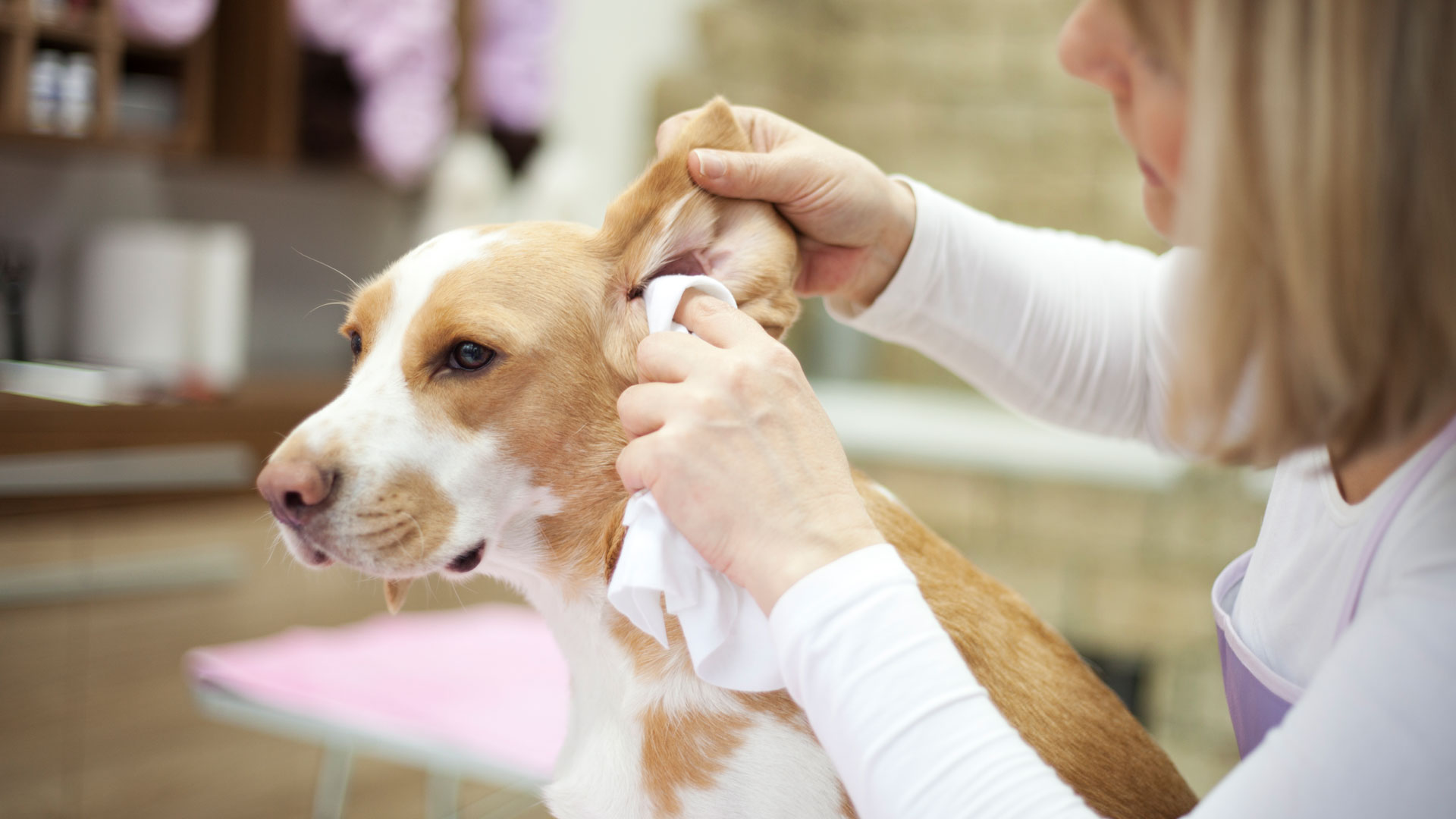Five signs of dog allergies you really need to know
Is your pup feeling under the weather? Here are the five signs of dog allergies to keep an eye out for

If your dog has been behaving a little strangely recently, you might notice the signs of dog allergies. When it comes to allergies, the symptoms can be varied and your dog could show any combination of them. This can make diagnosing a dog allergy a little more complicated than some other conditions, so it’s important to keep an eye out for common allergy symptoms so that you can work together with your vet for an accurate diagnosis. While there are no cures for allergies, there are plenty of things you can do to lessen the symptoms and make your dog more comfortable.
We spoke with veterinarian Jo Woodnutt to find out what kind of allergies dogs can have and what the most common signs of dog allergies are. While switching your dog over to the best dog food for allergies can be a great source of relief for many pups, you want to make sure that you’ve got an accurate diagnosis before you start messing with your dog’s diet.
If you suspect that your dog might have developed an allergy to something in their food or environment, we’d recommend booking a vet appointment. It’s important to note that many allergy symptoms can be shared with other conditions, so make sure to include your vet in the conversation to ensure that your dog receives the correct treatment.
Vet Jo Woodnutt says that “Dogs can theoretically be allergic to anything, but allergies tend to fall into three groups – food allergies, environmental allergies, and flea/insect allergies. Flea and insect allergies occur when a dog is bitten by the insect, and result in a far more itchy dog than you would expect.”
She goes on to add that “Food allergies are to proteins in the food – a dog develops a food allergy over time, so they aren’t allergic the first time they try a food, it’s always later.” This means that your dog might become allergic to their kibble, even if they’ve been eating it for months or years. Three of the most common food allergies in pets are beef, dairy products, and chicken – all of which can often be found in various dog foods and treats. If your dog has a food allergy, you’ll need to become an expert at reading dog food labels to ensure that they don’t come into contact with their allergen.
One of the trickiest allergies to deal with is environmental causes. Jo says, “Environmental allergies are everywhere – weed, tree, and grass pollen, house mites, and even other pets in the house can trigger an environmental allergy.” She goes on to add “The time of year this happens can help us work out what sort of allergy your dog has, but some dogs will have problems year-round because their allergen is present year-round.”
5 signs of dog allergies
1. Itchy skin
Jo says that one of the most “common signs of skin allergies in dogs include itchy skin, especially the feet, and ears. You might notice your dog cleaning or chewing at their feet more than usual, or their fur – if white – might be stained pink.” While it’s normal for dogs to lick themselves and nibble at their paws, if you think your dog is doing it excessively (or they start to perform the behavior when they hadn’t before), then it could be a sign of an allergy.
You might also want to read about skin conditions in dogs.

2. Ear issues
Jo says that one of the key signs of an allergy is your dog “suffering from recurrent ear infections”, or even simply experiencing itchy ears. Ear infections are caused by the dog’s ear becoming moist and inflamed with increased wax and discharge, causing the natural yeast and bacteria to multiply. If you see your dog shaking their head or scratching their ears more than normal, then you might want to take a look inside their ears.
If you can see redness in their inner ear, or smell a bad odor coming from the ear, then this could be a sign of an ear infection, so it’s best to take them to the vet.

3. Stomach problems
Jo says that “Dogs with food allergies might have regular upset stomachs or soft stool.” They might also display vomiting as well. If your dog is regularly displaying stomach issues, but your veterinarian is never able to diagnose any kind of virus, then this could be an indication of an allergy. Remember that allergies develop over time, so even if your dog has been eating the same food for years, it doesn’t mean that it’s not causing the problem now.
4. Runny eyes
If your dog often rubs their face on the floor, or drags their face along the side of furniture, then this might be a sign that they have itchy eyes. Other key signs to watch out for include your dog squinting their eyes, pawing at their face, the whites of their eyes being red and inflamed and eye discharge in dogs coming from one or both eyes.
5. Inflamed skin
As you might have noticed, many of the most common signs of dog allergies revolve around the skin. While your dog might show behavioral signs that they’re experiencing itchiness, you can also inspect your dog to see whether you can notice any physical signs as well. Watch out for any hives, hot spots, red and inflamed skin or swelling of the face, ears, lips, eyelids or earflaps. If you can see any of these issues, then this could be a sign of a potential dog allergy.
Here's what to do if you're wondering how to help a dog with allergies.For more on this, take a look at our feature covering food vs environmental dog allergies: everything you need to know.
If you think you might be suffering from allergies, be sure to check out Allergic to dogs on symptoms and ways to cope.

Having qualified as a veterinarian from the University of Nottingham, Dr Joanna Woodnutt then went on to practice companion animal medicine in the Midlands. Dr Woodnutt really found her feet when it came to the consulting side of things and helping clients with medical problems such as dermatology, behaviour and nutrition. So she now spends a lot of time helping clients understand their pets better.
PetsRadar Newsletter
Get the best advice, tips and top tech for your beloved Pets
Louise Carey is a freelance writer and the Editor of sister website Top Ten Reviews. She has been working in publishing for seven years, contributing to publications including The Independent, TechRadar, Digital Camera World and more. As the proud pet parent of a reactive border collie with a food allergy, it’s been necessary for Louise to explore a variety of fun and exciting ways to enrich an energetic dog that can’t always go on walks. She’s passionate about sharing the information she’s learned to help other pet owners as well.

